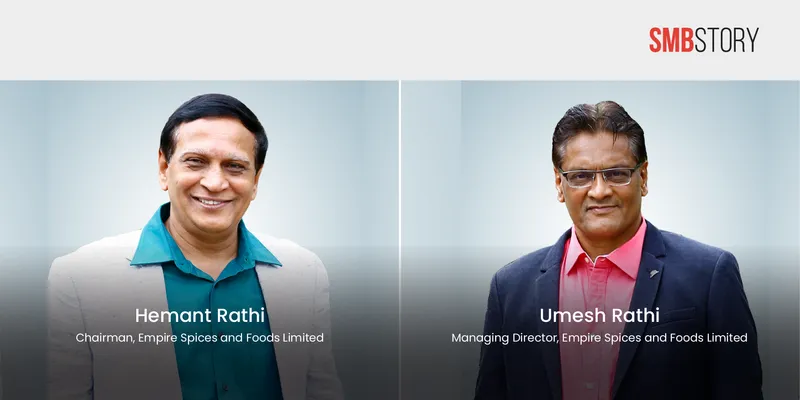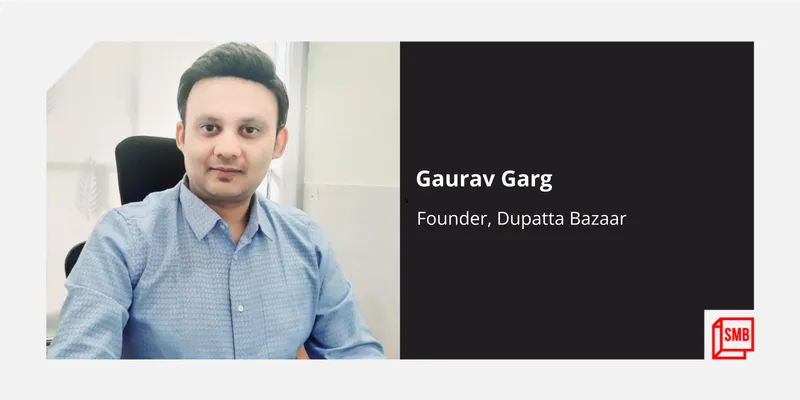Small businesses, big opportunities: 5 companies that are ruling the world with a common yet strong idea
A big business starts small. Here are five businesses that tapped into a common idea but with sheer determination, are ruling the global market.
The world is filled with remarkable ideas, it’s just the willingness to take risks and execution that sets successful entrepreneurs apart.
Starting a small business just needs an idea and the willpower to execute it.
SMBStory has listed five small businesses that began with a simple premise.
Empire Spices

One of the fastest-growing FMCG (fast moving consumer goods) companies, and Foods offers a wide range of products, including pickles, papads, spices, ketchup, sauces, pastes, and chutneys. It is on a mission to expand its business and is reaching out to new markets.
Started in the 1970s in Nashik, the family-managed business Empire Spices and Foods brand portfolio includes brands Ram Bandhu, RBM, Temptin’, and Zaiqa.
The company has its presence across 12 states with more than half a million retail shops, and a network of more than 1,000 distributors. The company also exports to countries like the US, the UK, Qatar, Dubai, Canada, Germany, Netherlands, Luxembourg, and Bahrain.
Today, the company sells 1,000 tons of papad and 6,000 tons of pickles yearly. It also sells 8 tons of sauces, a new edition in their product category, daily.
Bikanervala

Shyam Sundar Aggarwal and Manish Aggarwal
After the partition of India in 1947, businesses found themselves in a newly-independent India, with a new set of rules and norms and finding new ground. Many entities had suffered and people were on a lookout for new opportunity to make ends meet, making them travel places.
Lala Kedarnath Aggarwal also moved to Delhi from Bikaner to earn a livelihood and started selling traditional sweets and savouries in a trolley in Chandni Chowk. His hard work and luck favoured him and the business soon took off. In a short while, he started a small tuck shop as ‘Bikaner Namkeen Bhandar’ in the same area, offering namkeens and snacks.
In due course, the establishment gained recognition as ‘Bikanervala’ and became popular for delivering bikaneri bhujia and other foods of authentic Indian flavours. In 1965, Lala’s son, Shyam Sundar Aggarwal, joined the business to expand across and outside the National Capital Region.
As of 2020, Bikanervala has grown to over 100 outlets in India.
Building on the legacy of Bikanervala, the family felt that they should take their culinary legacy to beyond the borders of India. With the emergence of the packaged food industry in the 1980s, they could finally act upon their vision of expanding their business.
Shyam Sundar launched Bikano in 1988 to become a dominant FMCG player, all while retaining the quality of excellence as envisioned by his father.
Bikano now offers different varieties of namkeens, cookies, sweets, papad, syrups, and flour-based foods like matthi and samosa. It has over 270 domestic SKUs and more than 320 international SKUs, with frozen foods forming the backbone of its exports business. It exports to 45 countries, including the US and the UK.
MDPH

Ankit Agrawal (left), Director and Partner, MDPH, and Anshul Agarwal (right), Partner, MDPH
Even seven years after Prakash Agrawal quit his sales assistant job at a textiles store in Indore, he couldn't find success as an entrepreneur. His attempts at manufacturing and selling soaps, detergents, and hair oils all proved to be unsuccessful.
Prakash’s mother didn’t want him to continue manufacturing and failing. The family had limited means, and she always wanted her son to pursue a stable job in the textile shop. But he was adamant and wanted to stick to entrepreneurship.
One fine day in 1992, Prakash’s mother told him that as he couldn’t succeed as a manufacturer, he should become a distributor for any established agarbatti (incense sticks) brand.
He took this as a challenge instead – wanting to prove his mother wrong by becoming a successful manufacturer. But even Prakash had to admit that agarbattis were a good idea. The Indian market for agarbattis was flourishing in the 90s on the back of a swelling demand.
Speaking to SMBStory, his son, Ankit Agrawal, said:
“My father did not have any capital. In 1992, he borrowed Rs 5 lakh from some relatives to start an agarbatti manufacturing business, Mysore Deep Perfumery House (MDPH), and agarbatti brand Purab Paschim Uttar Dakshin. His younger brothers, Shyam and Raj Kumar, joined him in the effort.”
And so, Prakash and his brothers began making agarbattis out of a small garage in their Indore house. His mother joined to supervise the labour and production processes.
The brand started doing well but Prakash wanted to experiment with a new brand with an English name and colourful packaging. This led him to launch ‘Zed Black’ under parent in 2000.
The experiment proved hugely successful it soon became one of the fastest-growing agarbatti brands in India.
Today, the company processes over three crore incense sticks and sells more than 15 lakh retail packs of Zed Black agarbattis in India every day. In FY21, it clocked a turnover of Rs 650 crore.
Dupatta Bazaar

The origin of dupattas (also known as chunni) goes back to Indic culture. An indigenous product that many take pride in carrying, is famous worldwide for the variety of designs.
But one biggest shortcoming with dupattas is that it usually fails to please its prime customers – women.
From quality of fabric to colour, design, and length, finding the right dupatta to match a dress is exhausting. And, this is where , run by Gaurav Garg, bridges the gap.
“I was once in the Crawford market of Mumbai for a meeting when I saw a woman struggling to match a dupatta with her suit. While I was waiting for the person to arrive, I could see this lady hopping from one shop to another in search of one desired dupatta but all in vain. I was in the market for about two to three hours and when I was leaving, I still found her searching for that one desired piece of dupatta,” the founder tells SMBStory.
As Gaurav hails from a family business of textiles and comes from the heart of Rajasthan, Ajmer, it was surprising for him to see that woman struggling so much. “I thought that artisans and shopkeepers dealing in dupattas in Rajasthan struggle to get customers and here customers are actually pleading for those same products.”
At this point Gaurav thought of starting a business dealing in dupattas of all kinds to help customers by creating a one-stop shop for their dupatta needs.
An ex-equity research analyst, Gaurav was the only one in his family who had pursued a job but fate had other plans. Gaurav quit his cushy job and entered the world of textile through selling dupattas.
In a span of 11 years now, Gaurav has served more than seven lakh orders and made a presence beyond the Indian boundaries. The collection of 3,000-plus dupattas available under Dupatta Bazaar are made either in-house or sourced directly from the artisans. From Mexico to East Africa, Zimbawe, and wherenot, we have delivered dupattas everywhere,” Gaurav tells SMBStory.
Yash Pakka Ltd

The story of Ved Krishna’s roller-coaster life is the perfect example of the saying: ‘when one door closes, another one opens’. Ved had always dreamt of becoming an Air Force pilot. However, destiny had other plans for him.
Ved is no stranger to business. From early on, he saw his father, KK Jhunjhunwala, build a paper mill from scratch in Ayodhya, Uttar Pradesh. Established in 1981, started by making wrapping papers out of sugarcane waste.
KK saw many ups and downs in his life, especially after separating from his joint family. His wife even had to sell her jewellery for KK to start the business.
“I have seen my parents working as a team. My father is my role model and he always considered my mother as a trustee in his business,” says Ved.
At one point, Ved’s father was even considering selling off the business. But now more than 40 years later, Yash Pakka Ltd is a Rs 300 crore turnover company with a presence in 30 countries with their sustainable packaging.
Edited by Affirunisa Kankudti








1552049795284.png?mode=crop&crop=faces&ar=1%3A1&format=auto&w=1920&q=75)
